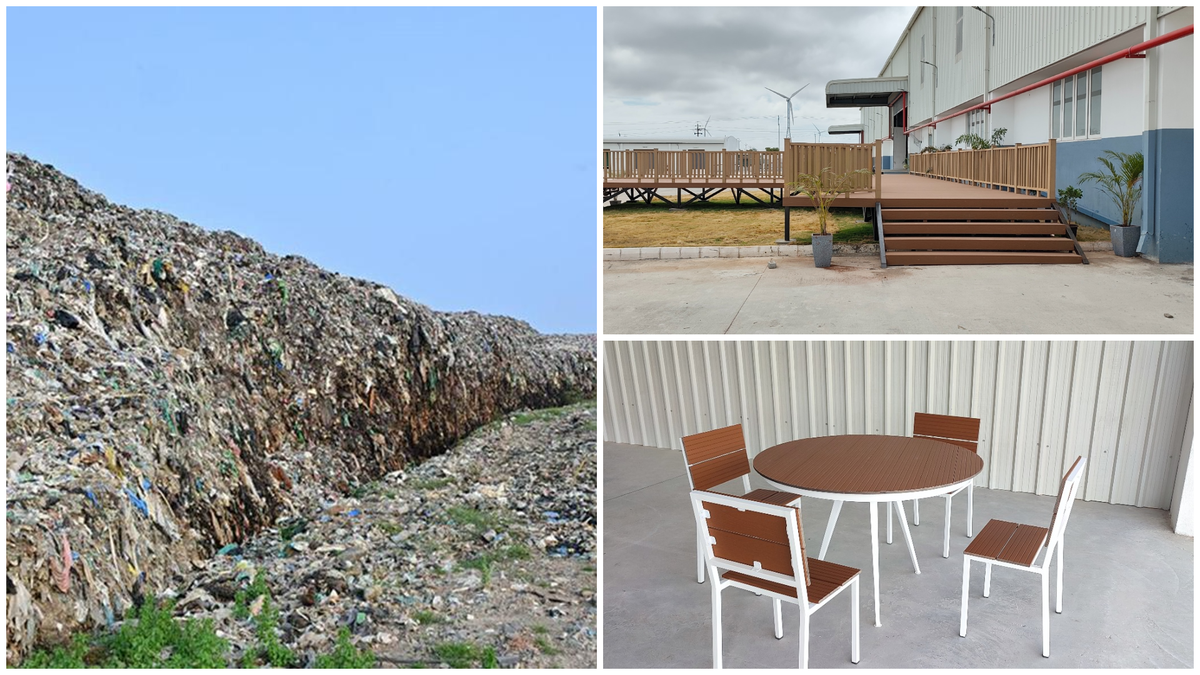Every day, Chennai sends about 5,500 tonnes of garbage to two dumpsites — Perungudi and Kodungaiyur. For decades, they’ve loomed over the city like mountains. Now, one of them is finally slowly vanishing.
Dumpsite mining, a method of reclaiming and restoring the land locked in landfills, offers hope for neighbourhoods battling growing piles of trash. Chennai-based integrated sustainability platform Blue Planet’s Zigma Environmental Solutions has cleared close to 95 acres of the nearly 200-acre Perungudi dumpyard. The waste is being used to craft everything from furniture to steel pallets at their facility in Coimbatore.
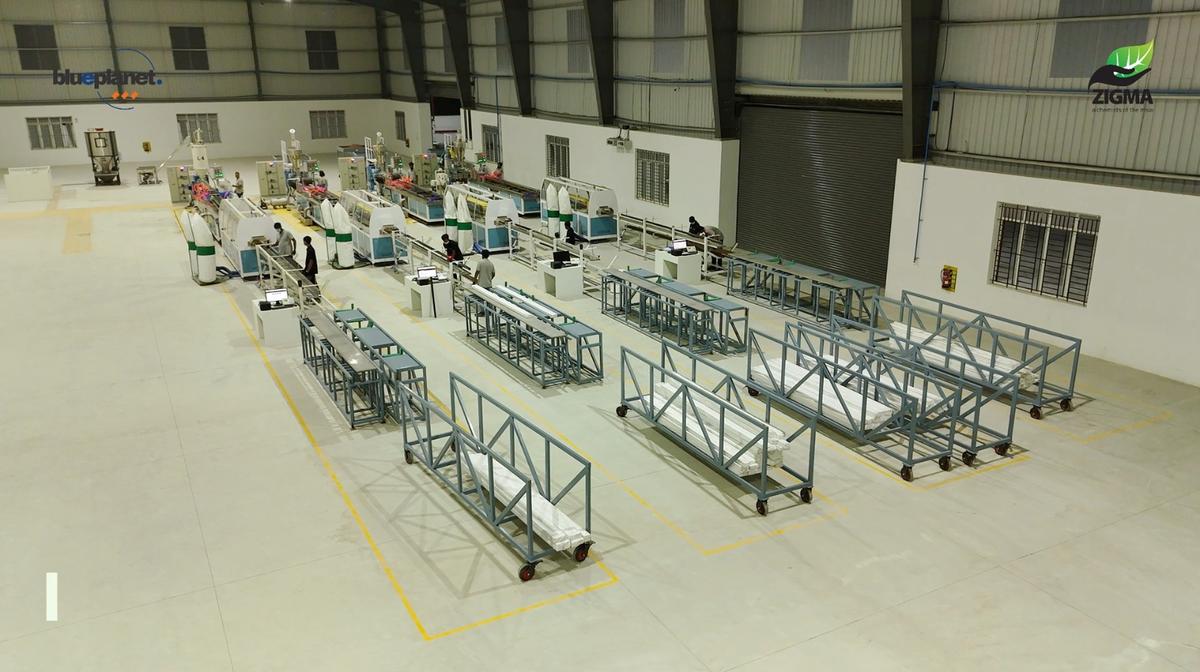
The production facility at Coimbatore
| Photo Credit:
Special Arrangement
Prashant Singh, co-founder and CEO, Blue Planet, explains how the Perungudi dumpyard has been a growing concern for decades, especially since it sits close to Pallikaranai marsh. One of the largest natural marshlands in the world, the latter is an internationally recognised wetland as well as it is Chennai’s natural rainwater harvesting system, helping prevent floods, recharge groundwater, and support incredible biodiversity. The marshland is home to an astonishing variety of life: 115 bird species, 46 fish species, 21 reptile species, and over 100 plant varieties. .
“This massive waste mountain contained over 30 lakh cubic metres of garbage. Imagine a pile so large it could fill hundreds of Olympic swimming pools,” he says, adding that since 2004, air quality tests have revealed the presence of 27 toxic chemicals around the dumpyard, including three known cancer-causing substances.
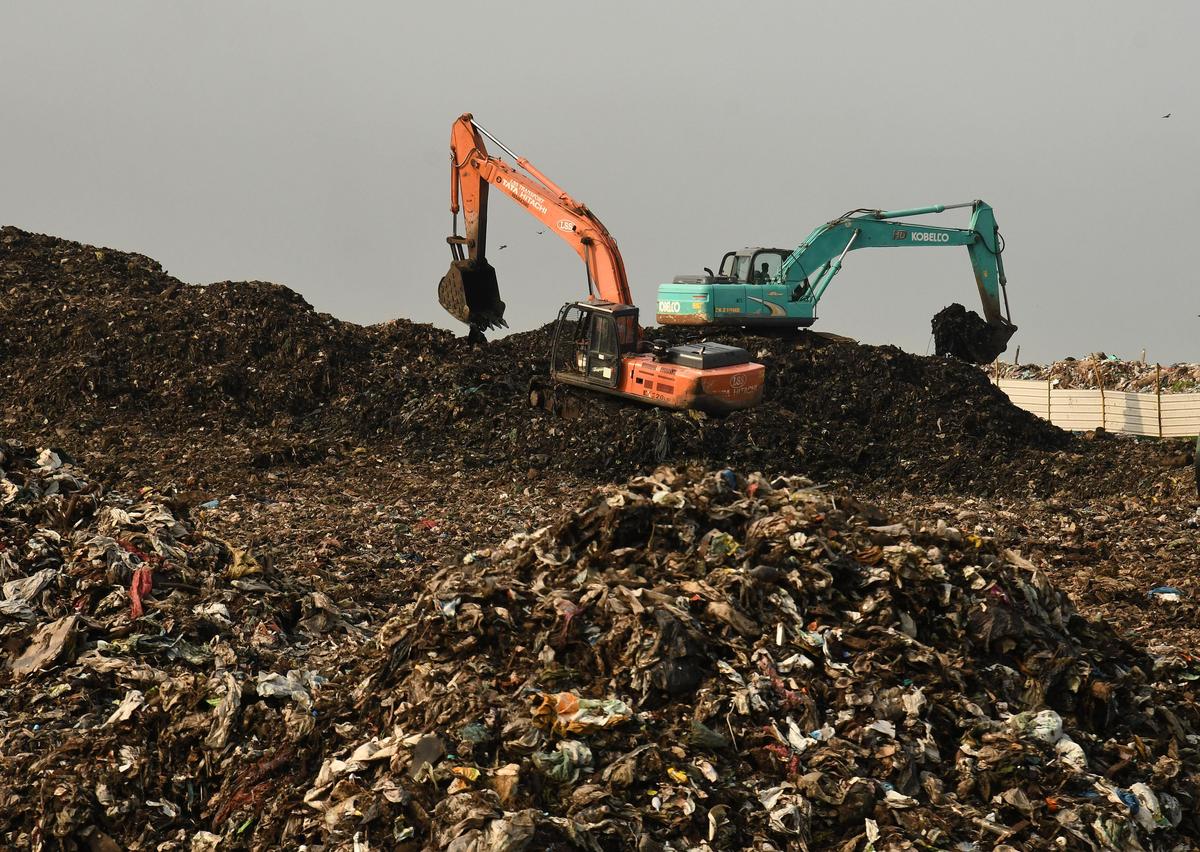
The Perungudi dumpyard
| Photo Credit:
BIJOY GHOSH
In November 2020, the Greater Chennai Corporation (GCC) launched an ambitious project to mine the entire Perungudi dumpyard, dividing it into six packages. “By February 2021, contracts were awarded with a 40-month timeline. Three of the six packages – covering over 16 lakh tonnes of waste and 93 acres – went to us,” says Prashant. Singapore-based Blue Planet was founded in 2017 and is an integrated sustainability platform that spans waste collection, processing, and transformation into clean energy, fuels, and circular products.
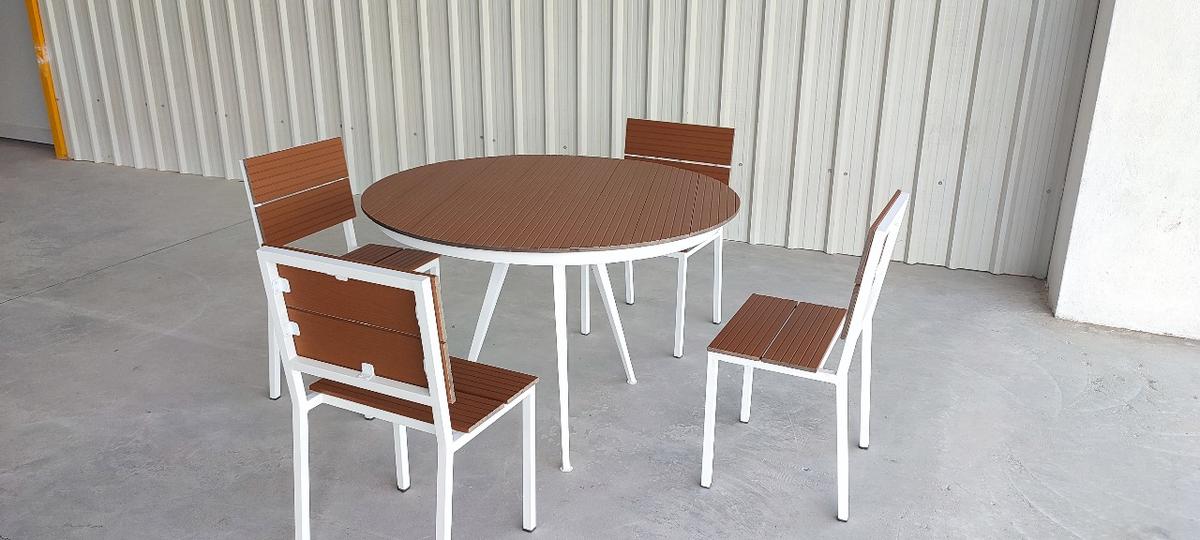
Furniture at Blue Planet
| Photo Credit:
Special Arrangement
Explaining the various stages of the project, Prashant says, “The first stage involved a pre-feasibility study including site investigation and drone surveys to assess the quantum of waste (by volume and weight), and waste characterisation studies to gauge the composition, physical and chemical characteristics of waste,” he says, adding that this waste was then converted into equally sized windrows and cones in a phased manner, “frequently raked and sprayed with bio culture to reduce the stench, flies, and moisture”. Then, processing systems help segregate the material based on size and density to ensure they can be responsibly recycled, re-used and re-purposed.
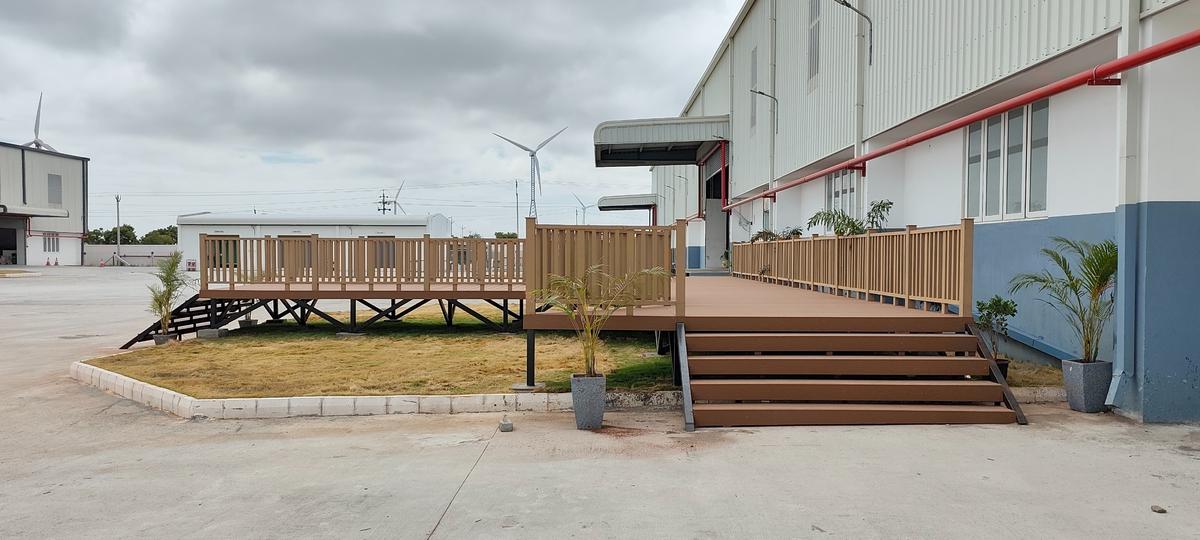
Blue Planet has cleared close to 95 acres of the nearly 200-acre Perungudi dumpyard
| Photo Credit:
Special Arrangement
Coarse soil recovered from the dumpyard was washed, cleaned, and processed to match construction-grade standards. “It’s now being supplied to leading Chennai companies as an alternative to river sand, saving our rivers from destructive sand mining,” he says. A part of the plastics, namely the non-recyclable HDPE, LDPE, and LLDPE variants, were transformed into furniture such as benches, chairs, and tables. “Using an extrusion process, these plastics were converted into lumber to become sturdy outdoor furniture, and to be used in decking and wall cladding for interiors and construction applications.”
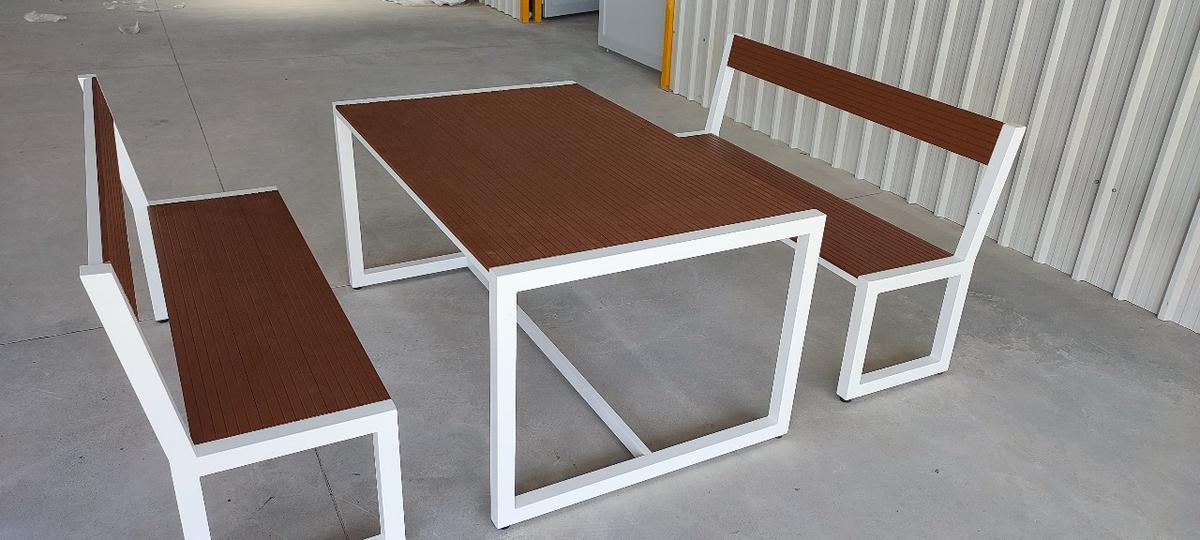
Furniture at Blue Planet
| Photo Credit:
Special Arrangement
Not only are these products made of non-recyclable plastics, but can be indigenously recycled again if damaged making it a classic case for environmental circularity, says Prashant. “By converting non-recyclable plastics into useful products, it is replacing the usage of virgin plastics which are derived from petroleum products.” As for the scalability of the project, he says large scale dumpsite mining projects are on the cards. “Upon acquisition of such large projects, the methodology can easily be adopted and scaled.” Prashant adds that while they do not sell those products online, they are sold “through existing partnerships in Ahmedabad, Pune, Bengaluru, Kolkata, and Noida, that are slowly being ramped up”.
Cladding and decking units are priced between ₹280 and ₹300 a square foot. Details on blueplanet.asia
Published – October 23, 2025 01:31 pm IST
